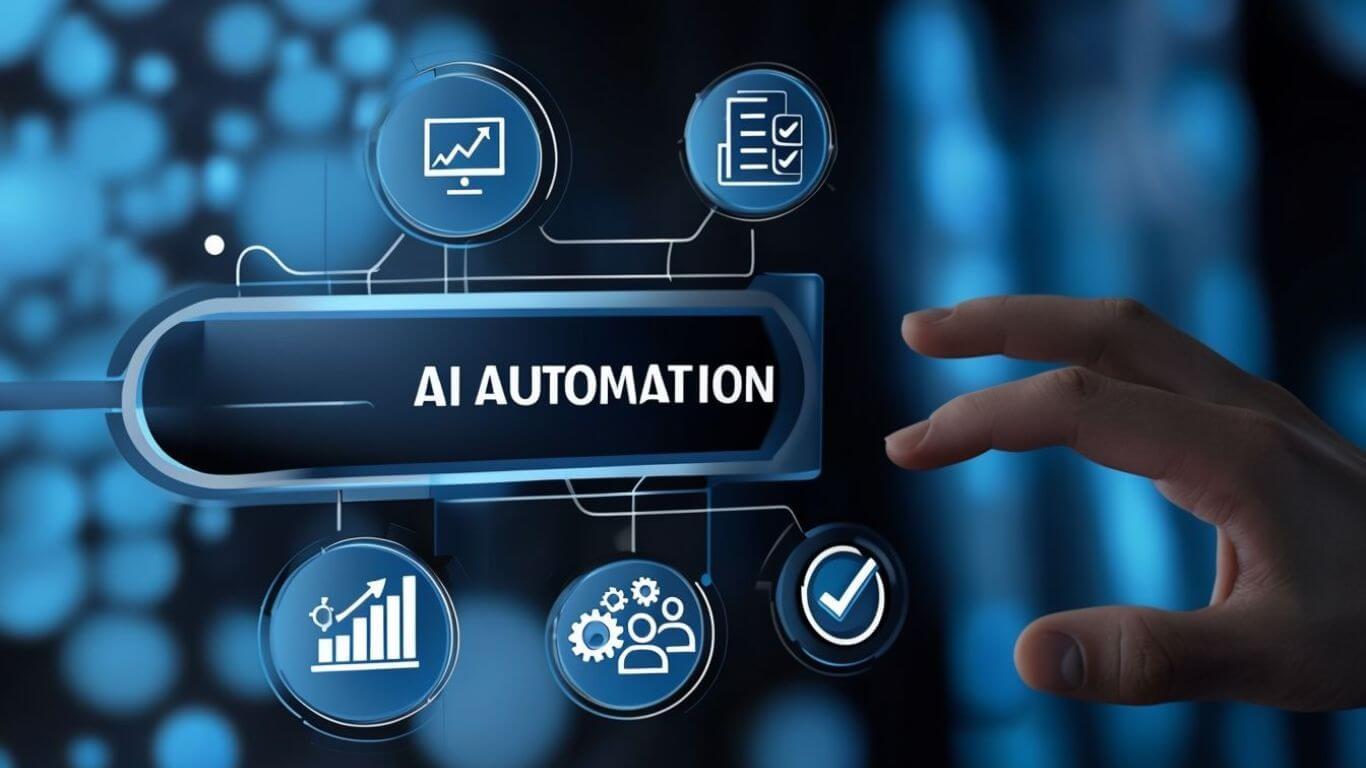In today’s fast-paced digital world, efficiency and convenience are no longer luxuries — they’re necessities. Businesses and individuals alike are seeking smarter, faster, and more reliable ways to manage daily operations, streamline workflows, and enhance productivity. That’s where the AI Agent comes in — your intelligent digital assistant designed to handle a wide range of tasks with accuracy, speed, and adaptability.
An AI Agent is not just a piece of software; it’s a smart system that understands commands, learns from interactions, and executes tasks across multiple platforms. Whether it’s managing schedules, automating customer support, generating content, analyzing data, or controlling smart devices, AI agents are revolutionizing how we interact with technology and simplifying how we live and work.
This blog explores how AI agents work, their key benefits, real-world applications, and how they are reshaping industries by offering personalized, efficient, and intelligent solutions for every task.
What is an AI Agent?
An AI Agent is an autonomous digital entity that performs tasks on behalf of a user using artificial intelligence technologies such as natural language processing (NLP), machine learning, and automation frameworks. Unlike traditional programs that follow fixed instructions, AI agents can analyze data, make decisions, and continuously improve their performance through learning.
In simpler terms, an AI agent is like having a smart personal assistant — one that can understand your requests, anticipate your needs, and carry out actions automatically.
Examples of AI agents include:
-
Virtual assistants like Siri, Alexa, and Google Assistant.
-
AI chatbots for customer support.
-
Business automation tools like ChatGPT-based agents.
-
Smart AI systems integrated into home automation and enterprise software.
These intelligent systems operate independently, enabling users to focus on higher-value activities while repetitive, time-consuming tasks are handled seamlessly by AI.
How AI Agents Work
AI agents rely on a combination of data, algorithms, and automation to perform their functions. Here’s a simplified breakdown of their working process:
-
Input Understanding (Perception):
The AI agent receives input through voice, text, or data. It processes the information using natural language processing to interpret meaning and intent. -
Decision-Making (Reasoning):
Once the input is understood, the agent evaluates possible responses or actions based on pre-set rules or learned data models. -
Action Execution:
The agent performs the requested task — whether that’s answering a question, sending an email, analyzing data, or scheduling a meeting. -
Learning and Improvement:
Over time, the AI agent learns from user interactions, adapting its behavior and improving its accuracy through machine learning.
This cycle of perception, reasoning, and action enables AI agents to work intelligently and autonomously, making them indispensable tools in both personal and professional settings.
Key Benefits of Using an AI Agent
The advantages of AI agents go far beyond simple automation. They enhance productivity, decision-making, and efficiency across industries. Here are some of their most valuable benefits:
1. 24/7 Availability
AI agents don’t need rest. They work around the clock, offering instant responses, support, and assistance anytime, anywhere.
2. Time and Cost Efficiency
By automating repetitive and manual tasks, AI agents save significant time and reduce operational costs, freeing up resources for more strategic activities.
3. Enhanced Accuracy
Unlike humans, AI agents operate with precision, minimizing human error in tasks like data entry, analysis, and reporting.
4. Personalization
Modern AI agents can tailor their interactions based on user preferences, learning behavior patterns to deliver more relevant recommendations and responses.
5. Scalability
AI agents can handle thousands of interactions simultaneously, making them ideal for growing businesses and customer service operations.
6. Seamless Integration
They can integrate with existing tools and platforms — such as CRM systems, communication software, or project management tools — creating a unified and efficient workflow.
Everyday Applications of AI Agents
AI agents are already playing a vital role in various aspects of our lives and industries. Here’s how they are transforming key sectors:
1. Business Operations and Automation
AI agents can automate repetitive tasks like scheduling, data analysis, and inventory management. In businesses, they enhance productivity by handling customer queries, managing databases, and optimizing workflows.
2. Customer Support
Many companies use AI chatbots and agents to manage customer interactions efficiently. These digital assistants can respond instantly to FAQs, resolve issues, and escalate complex cases to human representatives when needed.
3. Marketing and Sales
AI agents analyze consumer behavior, track engagement, and even craft personalized messages for customers. They help sales teams by qualifying leads, scheduling follow-ups, and predicting customer preferences.
4. Healthcare
AI agents assist healthcare professionals by scheduling appointments, maintaining patient records, offering medication reminders, and even analyzing diagnostic data to support clinical decisions.
5. Education
In learning environments, AI agents act as virtual tutors, providing personalized study materials, answering student questions, and tracking academic progress.
6. Smart Homes
AI agents integrated into home automation systems manage lighting, temperature, and security — adapting to user habits for a more comfortable living environment.
7. Financial Services
From automated budgeting tools to intelligent fraud detection systems, AI agents are revolutionizing how we handle money management and financial planning.
The Role of AI Agents in the Workplace
Modern workplaces are rapidly integrating AI agents into daily operations. They help employees become more efficient by managing administrative tasks and data-heavy processes. Some of the ways AI agents enhance workplaces include:
-
Automating HR processes such as payroll, leave management, and recruitment.
-
Assisting with project management and progress tracking.
-
Providing instant data analytics for informed business decisions.
-
Offering virtual meeting support — scheduling, reminders, and summaries.
The presence of AI agents allows human employees to focus on creative, strategic, and decision-making roles, increasing productivity and overall job satisfaction.
How AI Agents Improve Customer Experience
Customer experience is one of the biggest areas where AI agents have shown extraordinary results. By combining conversational AI and predictive analytics, these digital assistants create smoother, faster, and more personalized experiences for customers.
Key improvements include:
-
Immediate query resolution through chat or voice.
-
Personalized recommendations based on past interactions.
-
Proactive assistance using predictive data.
-
Consistent communication across multiple channels.
In a world where customer expectations are higher than ever, AI agents ensure that every interaction feels intelligent, efficient, and human-like.
The Future of AI Agents
The future of AI Agents is limitless. As artificial intelligence technology continues to advance, these digital assistants will become more adaptive, emotionally intelligent, and capable of managing complex decision-making processes.
Key trends shaping the future of AI agents include:
-
Emotionally aware AI: Systems that can interpret and respond to human emotions.
-
Voice-driven interfaces: Enhanced conversational AI for smoother communication.
-
Autonomous decision-making: Agents that can make business or operational decisions without human intervention.
-
Cross-platform integration: Unified AI systems that manage multiple aspects of life and work through one intelligent platform.
AI agents will continue to evolve from task-driven tools into collaborative partners — ones that understand context, emotions, and human goals to deliver even greater value.
Challenges and Ethical Considerations
While the rise of AI agents brings immense opportunities, it also raises important challenges and ethical questions.
-
Data Privacy: AI agents rely on user data to learn and improve. Ensuring secure data storage and privacy protection is crucial.
-
Bias in Algorithms: Developers must address potential biases in training data that could lead to unfair or inaccurate outcomes.
-
Job Displacement: Automation could impact certain job sectors, making it essential to balance innovation with workforce reskilling.
-
Transparency: Users should be aware when they are interacting with AI systems and understand how their data is used.
Addressing these challenges is essential for building trust and ensuring that AI agents are used responsibly and effectively.
Conclusion
The AI Agent represents the future of intelligent automation — a reliable, adaptive, and efficient digital assistant designed to simplify modern life. Whether you’re a business leader seeking operational efficiency, a professional managing multiple responsibilities, or a consumer looking for convenience, AI agents provide unmatched support across every domain.
From streamlining workflows and improving customer service to managing data and automating personal tasks, these smart systems are redefining productivity in the digital era. As technology continues to advance, AI agents will become even more intuitive, personalized, and integral to daily life — empowering humans to focus on what truly matters.
FAQs
1. What is an AI Agent used for?
An AI Agent is used to automate tasks, provide customer support, manage workflows, analyze data, and enhance productivity across various industries and personal applications.
2. Can AI Agents learn from user behavior?
Yes, modern AI agents use machine learning algorithms to adapt to user preferences and improve performance over time based on interaction data.
3. Are AI Agents safe to use?
When developed and deployed with proper security and privacy measures, AI agents are safe and reliable. Users should, however, ensure that data handling complies with privacy regulations.



